Search Our Whole site:
Just Search: Sierra Leone
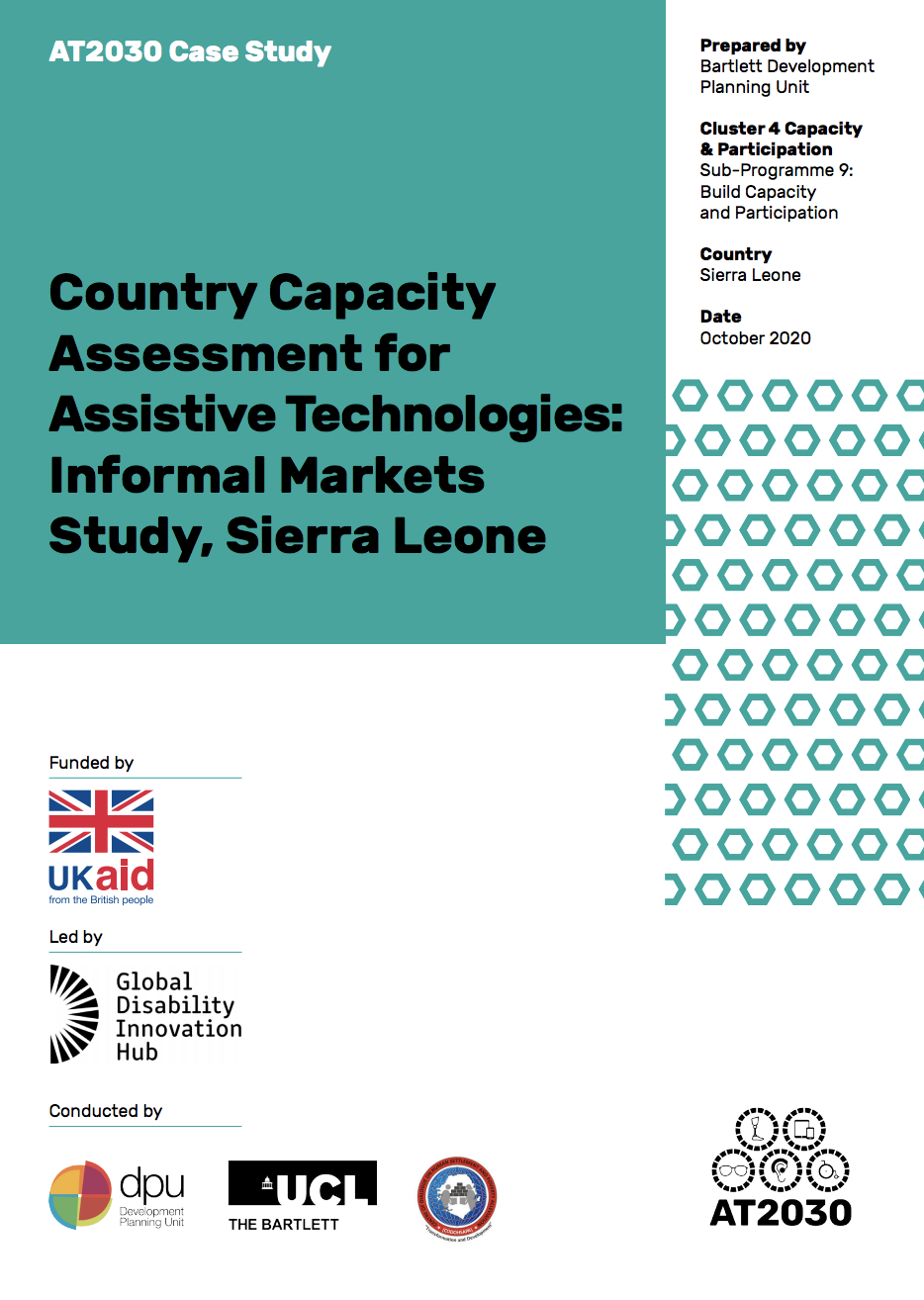
Country Capacity Assessment for Assistive Technologies: Informal Markets Study, Sierra Leone
This study was conducted as part of the AT2030 Research Programme, which is funded by FCDO and delivered by the Global Disability Innovation Hub (GDI Hub). It was carried out by a team from the Sierra Leonean Centre of Dialogue on Human Settlement and Poverty Alleviation (CODOHSAPA), the Sierra Leone Federation of the Urban and Rural Poor (FEDURP), the Sierra Leone Urban Research Centre (SLURC), and the Bartlett Development Planning Unit (DPU) at University College London (UCL).
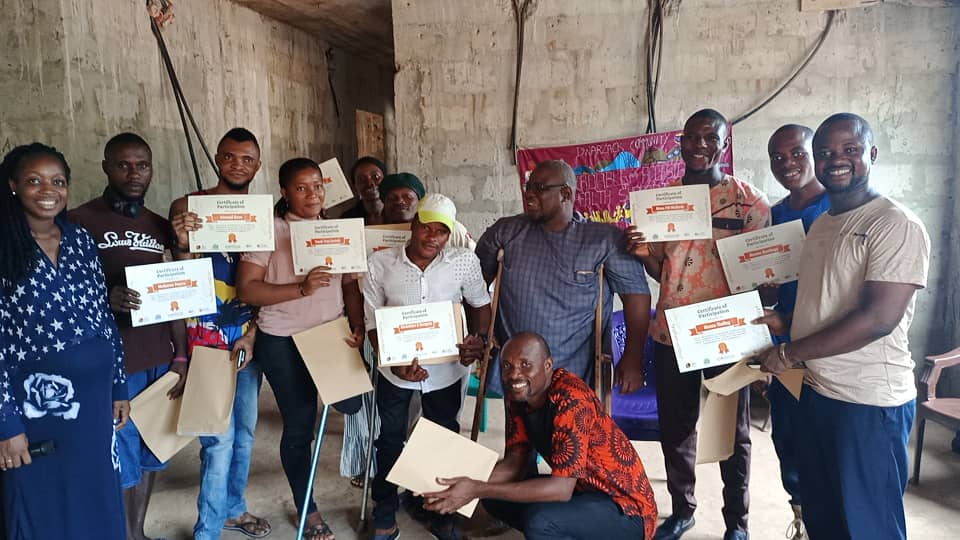
International Day of Persons with Disabilities in Sierra Leone
One of our brilliant partners in Sierra Leone, Dr Abs Dumbuya, who works with us on the AT2030 project, recently wrote a letter on the celebrations in the country on International Day of Persons with Disabilities on 3rd December and the progress the country has made.
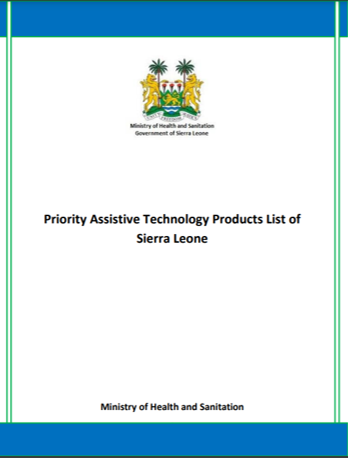
Priority Assistive Technology Products List of Sierra Leone
The Priority Assistive Technology Products List of Sierra Leone Report was developed by the Clinton Health Access Initiative under the AT2030 programme's Country Investment Fund.
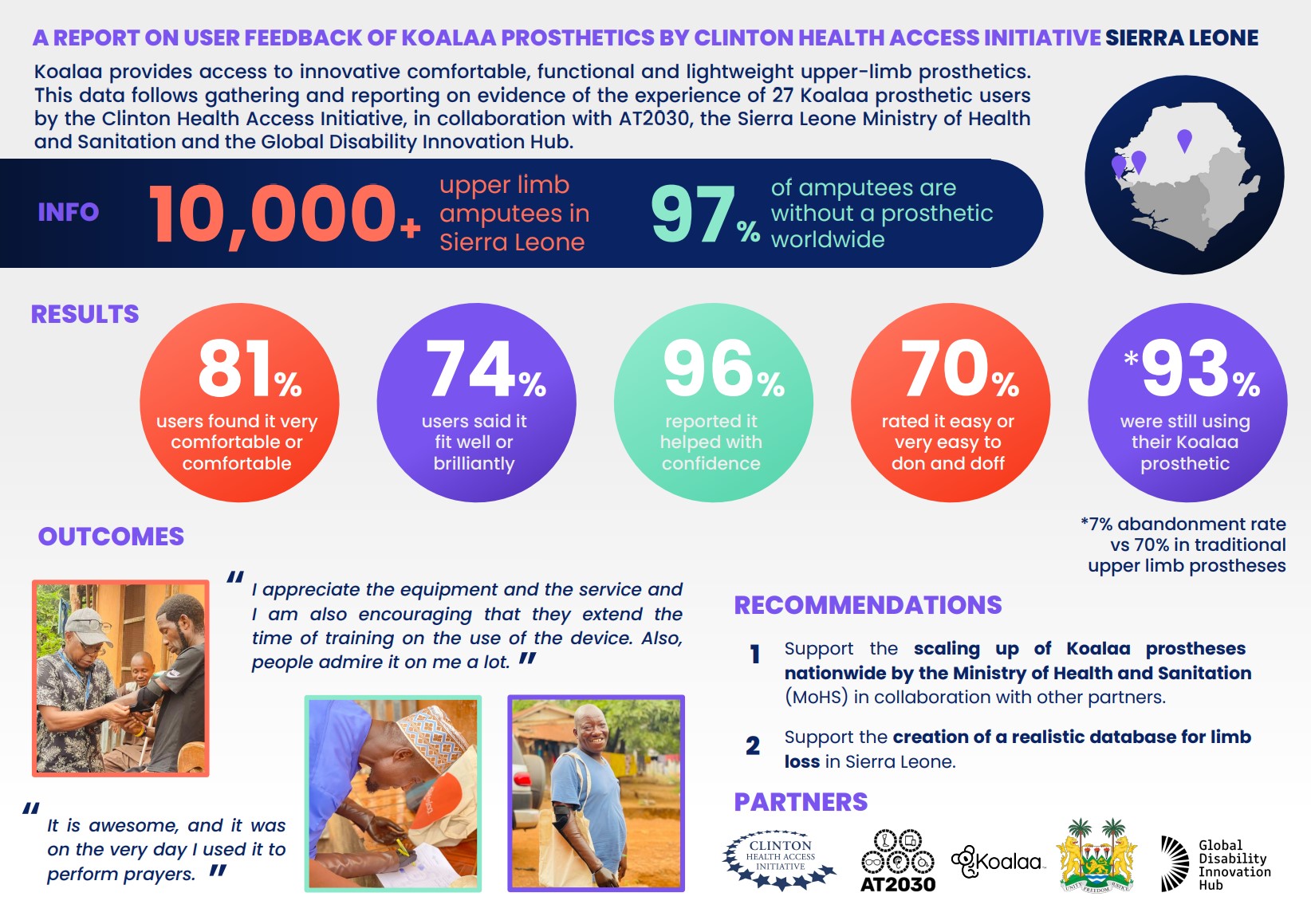
User feedback of Koalaa prosthetics by CHAI in Sierra Leone
User feedback of Koalaa prosthetics by Clinton Health Access Initiative (CHAI) in Sierra Leone. This document provides reporting on evidence from the experience of 27 Koalaa prosthetic users by the Clinton Health Access Initiative, in collaboration with AT2030, the Sierra Leone Ministry of Health and Sanitation and the Global Disability Innovation Hub - looking at outcomes and recommendations.

Launch Event: Inclusive Design and Accessibility of the Built Environment in Freetown, Sierra Leone
A launch event of Freetown's Inclusive Design and Accessibility of the Built Environment Case Study. This event will share findings and recommendations for infrastructure, built environment and urban development - with the aim of driving global action to more accessible and inclusive cities.
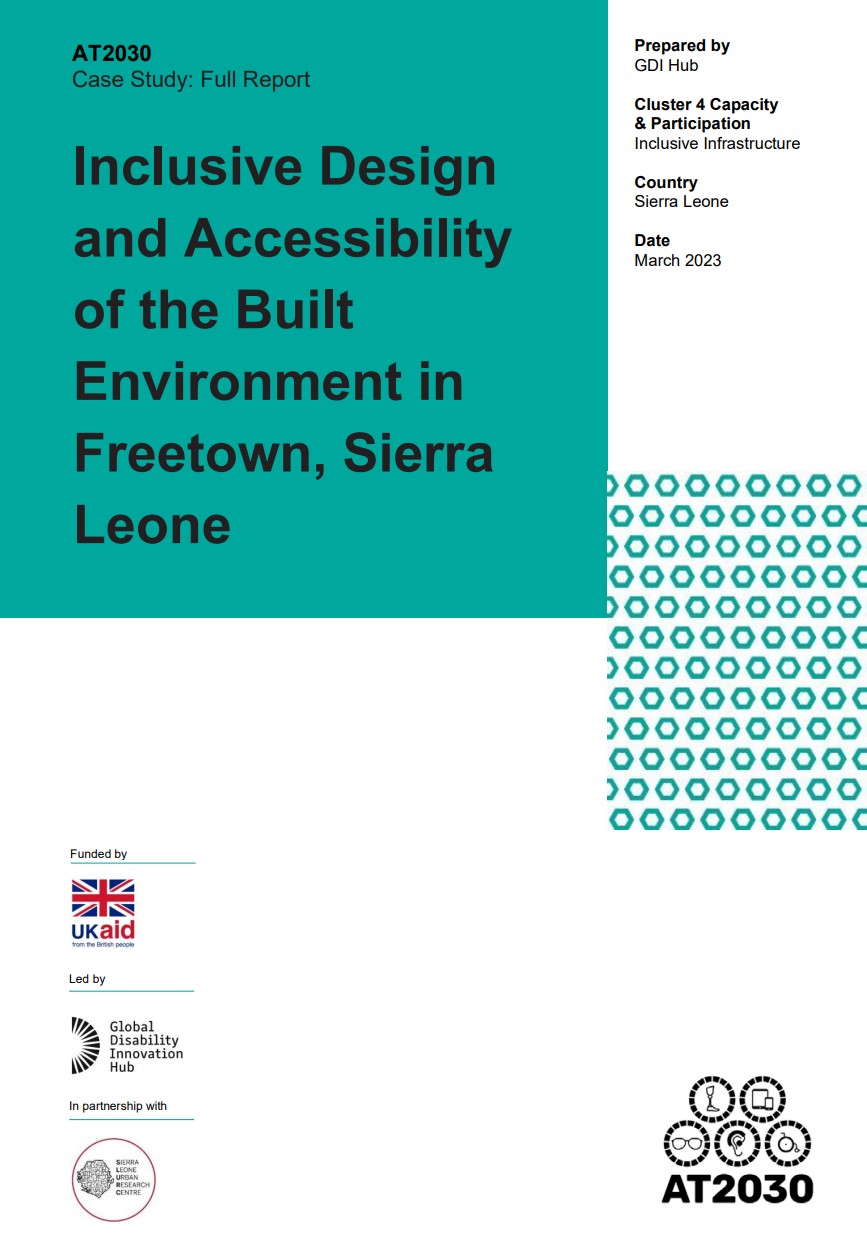
Inclusive Design and Accessibility of the Built Environment in Freetown - an Inclusive Infrastructure Case Study from Sierra Leone
This case study explores the current state of the infrastructure provision - and makes recommendations for opportunities to imbed accessibility and inclusion across Freetown.
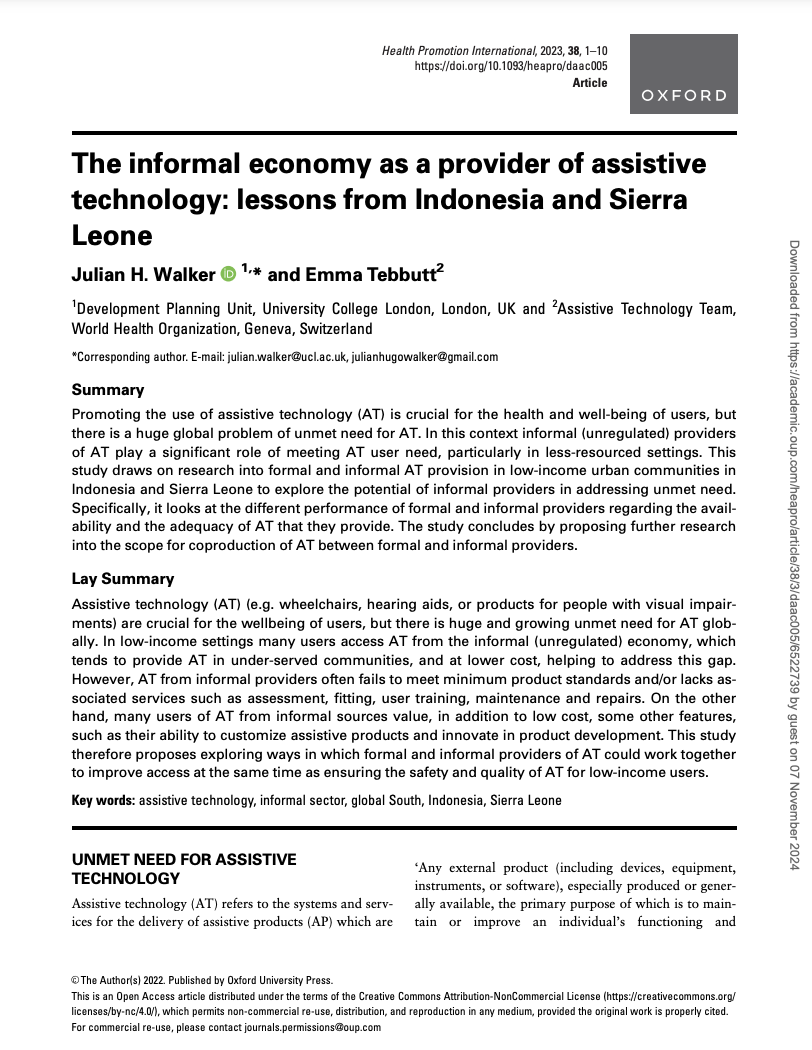
The informal economy as a provider of assistive technology: lessons from Indonesia and Sierra Leone
Assistive technology (AT) (e.g. wheelchairs, hearing aids, or products for people with visual impairments) are crucial for the wellbeing of users, but there is huge and growing unmet need for AT globally. In low-income settings many users access AT from the informal (unregulated) economy, which tends to provide AT in under-served communities, and at lower cost, helping to address this gap. However, AT from informal providers often fails to meet minimum product standards and/or lacks associated services such as assessment, fitting, user training, maintenance and repairs. On the other hand, many users of AT from informal sources value, in addition to low cost, some other features, such as their ability to customize assistive products and innovate in product development. This study therefore proposes exploring ways in which formal and informal providers of AT could work together to improve access at the same time as ensuring the safety and quality of AT for low-income users.

Government of Sierra Leone National Assistive Technology Procurement Guidelines of Sierra Leone
Procurement guidelines which seek to standardize the procurement process of AT products for Sierra Leone.
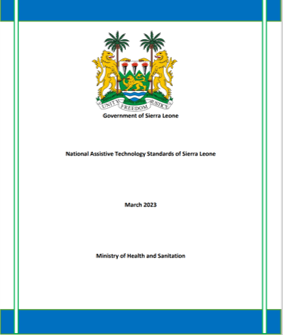
National Assistive Technology Standards of Sierra Leone
This document was developed to guide the procurement of assistive products in Sierra Leone. It is intended primarily for procurement teams, implementing partners and donors working on providing AT devices for all forms of disabilities.
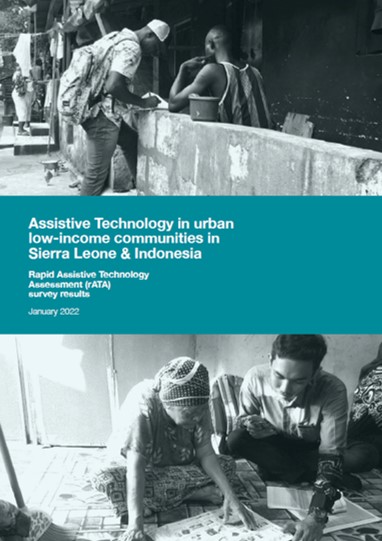
Assistive Technology in urban low-income communities in Sierra Leone & Indonesia
A new report presenting the findings from surveys in five urban low-income communities in Sierra Leone and Indonesia using the rapid Assistive Technology Assessment (rATA) tool.
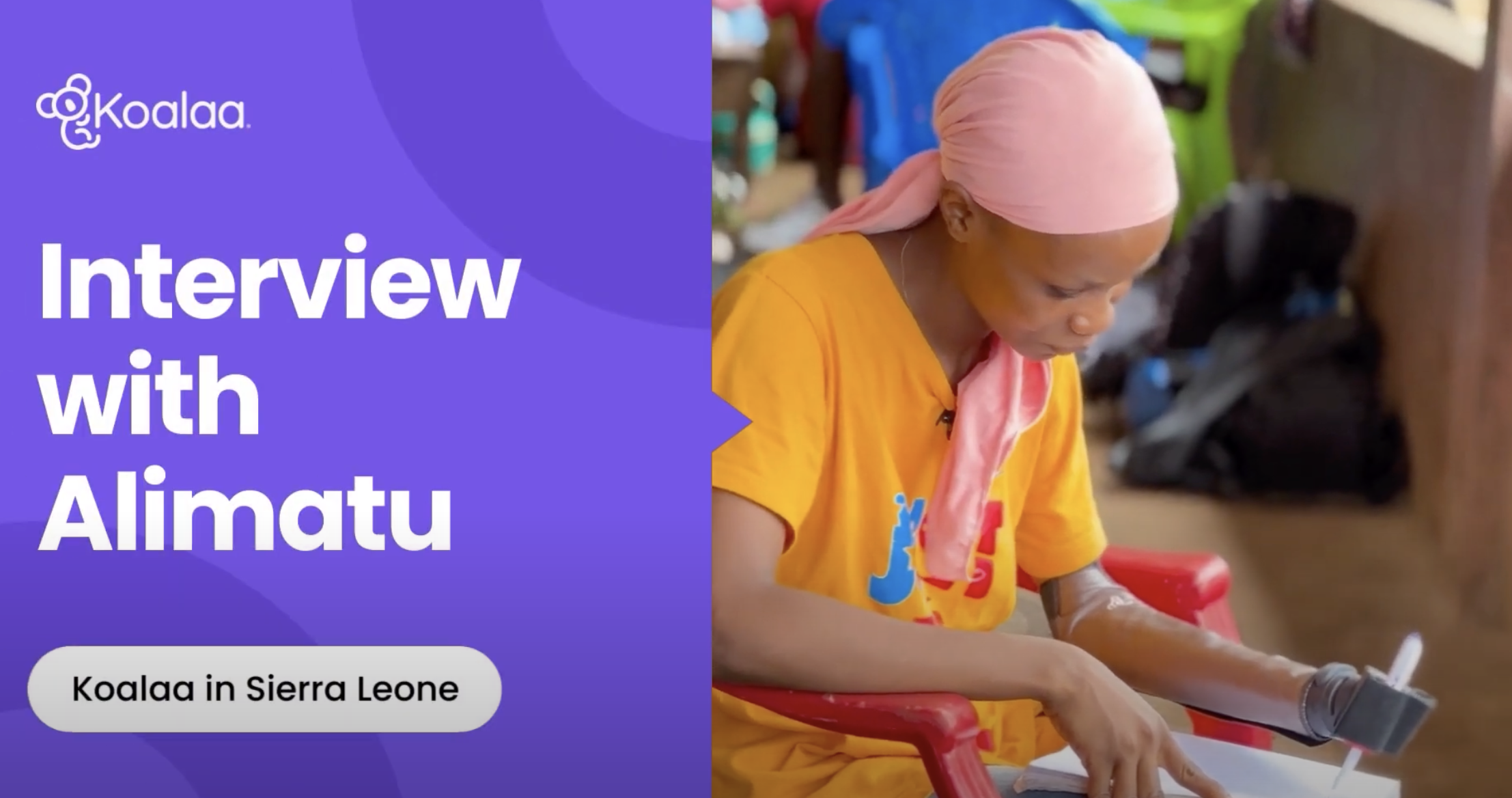
Spotlight on Sierra Leone – Meet Alimatu
Alimatu is 20 years old and lives in Freetown, Sierra Leone. Born with a below elbow limb difference, meaning her left arm did not develop fully at birth. Alimatu is currently at university studying finance. She was first introduced to Koalaa in 2021, through a local pastor. Koalaa spoke to Alimatu on our recent visit to Sierra Leone, to find out more about her experiences growing up with a limb difference and what she thinks of her Koalaa ALX.
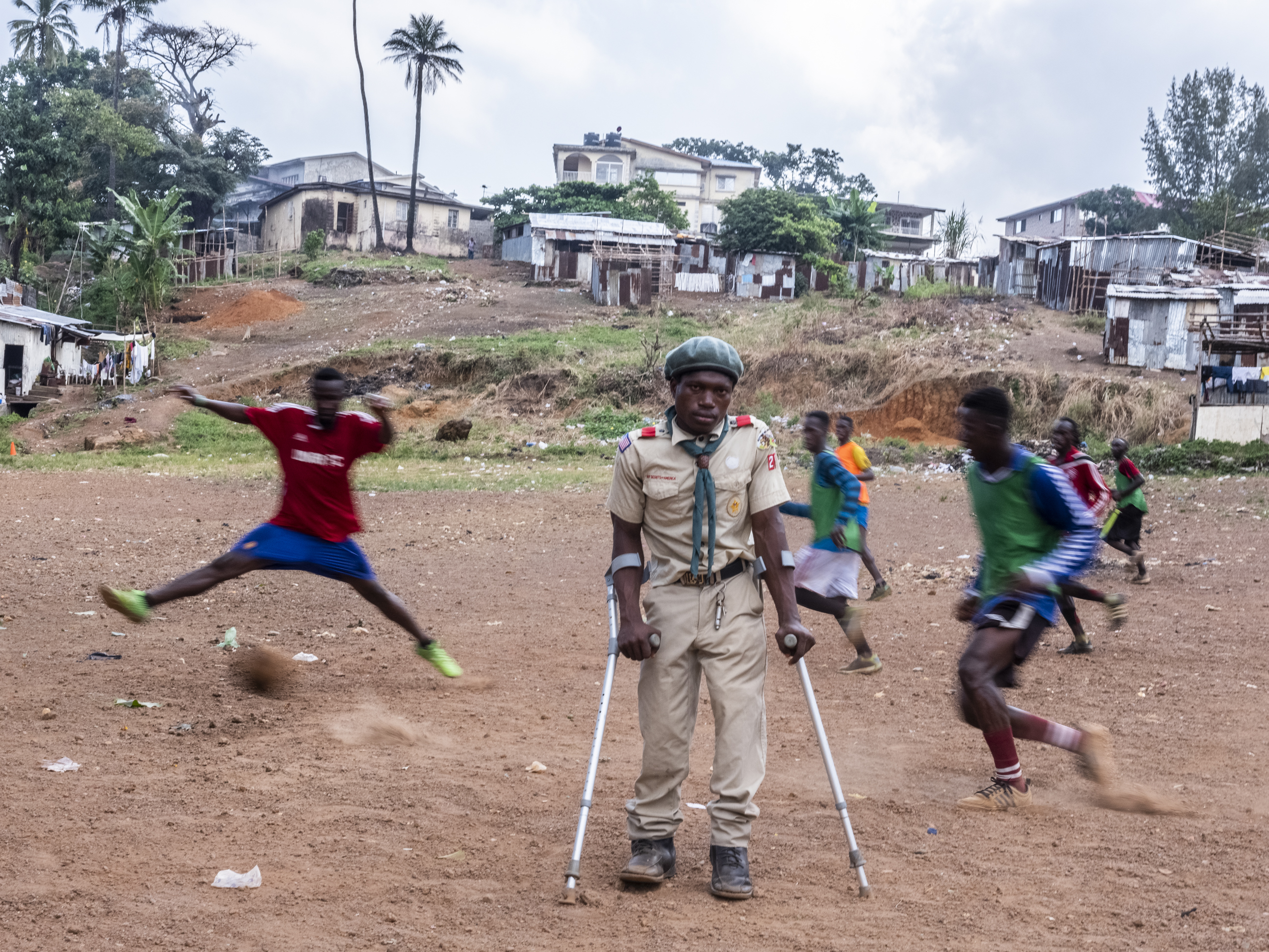
International Day of Persons with Disabilities in informal settlements in Sierra Leone and Indonesia
The 3rd of December is the International Day of Persons with Disabilities. We reflect on this year’s theme “Building Back Better: toward a disability-inclusive, accessible and sustainable post COVID-19 World” through DPU’s research “AT2030: Community led solutions” in informal settlements Sierra Leone and Indonesia.
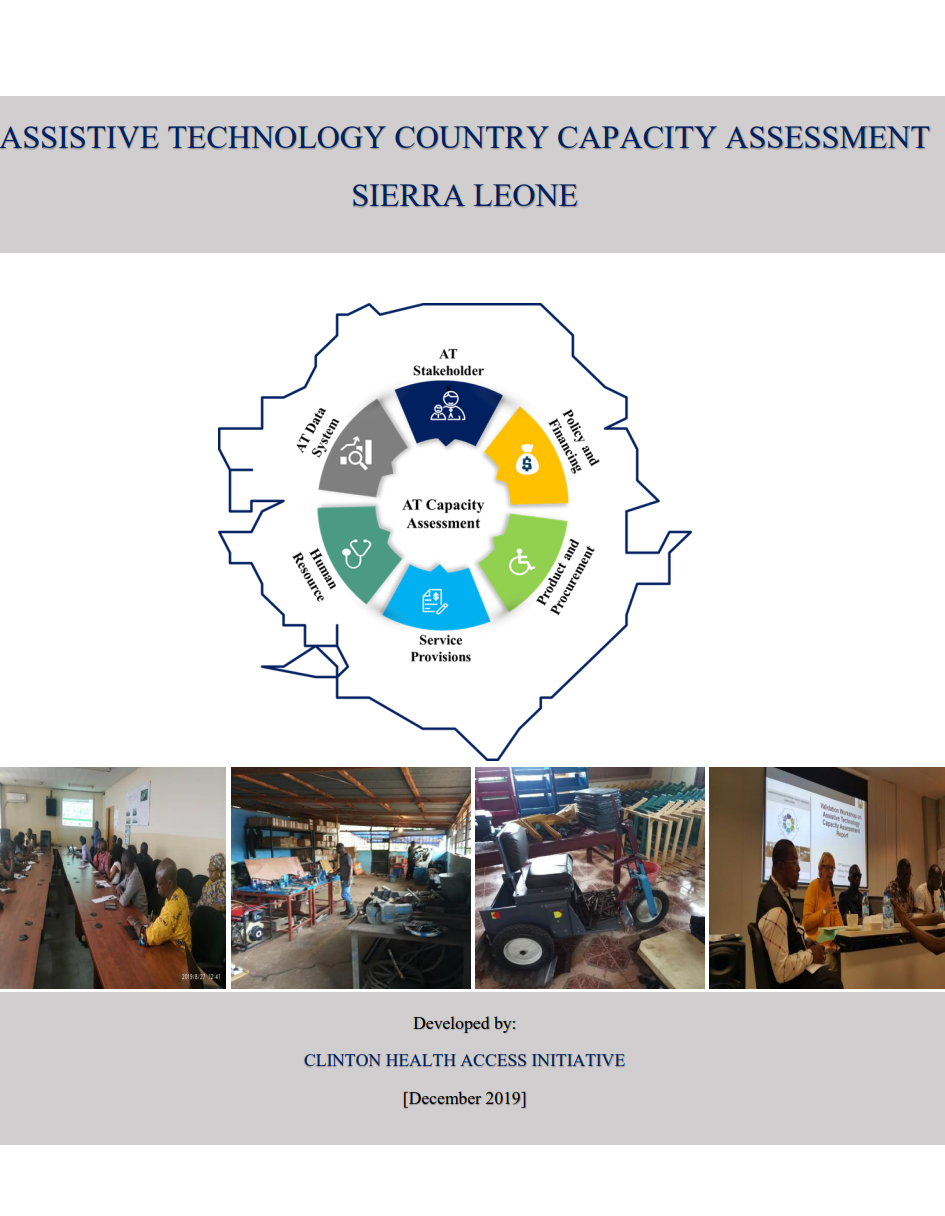
Sierra Leone Country Capacity Assessment
Assistive Technology Scoping Assessment in Sierra Leone evaluated and monitored the country’s capacity to procure and provide Assistive Technology that appropriately meet the population’s needs. Our methodology was characterized by a participatory, consultative, inclusive and transparent processes; with clear time-bound objectives and provided an opportunity to reflect on the applicability of evidence in different contexts and promoting dialogue among several types of stakeholders. WHO ATA-C instrument was customized for the purpose.
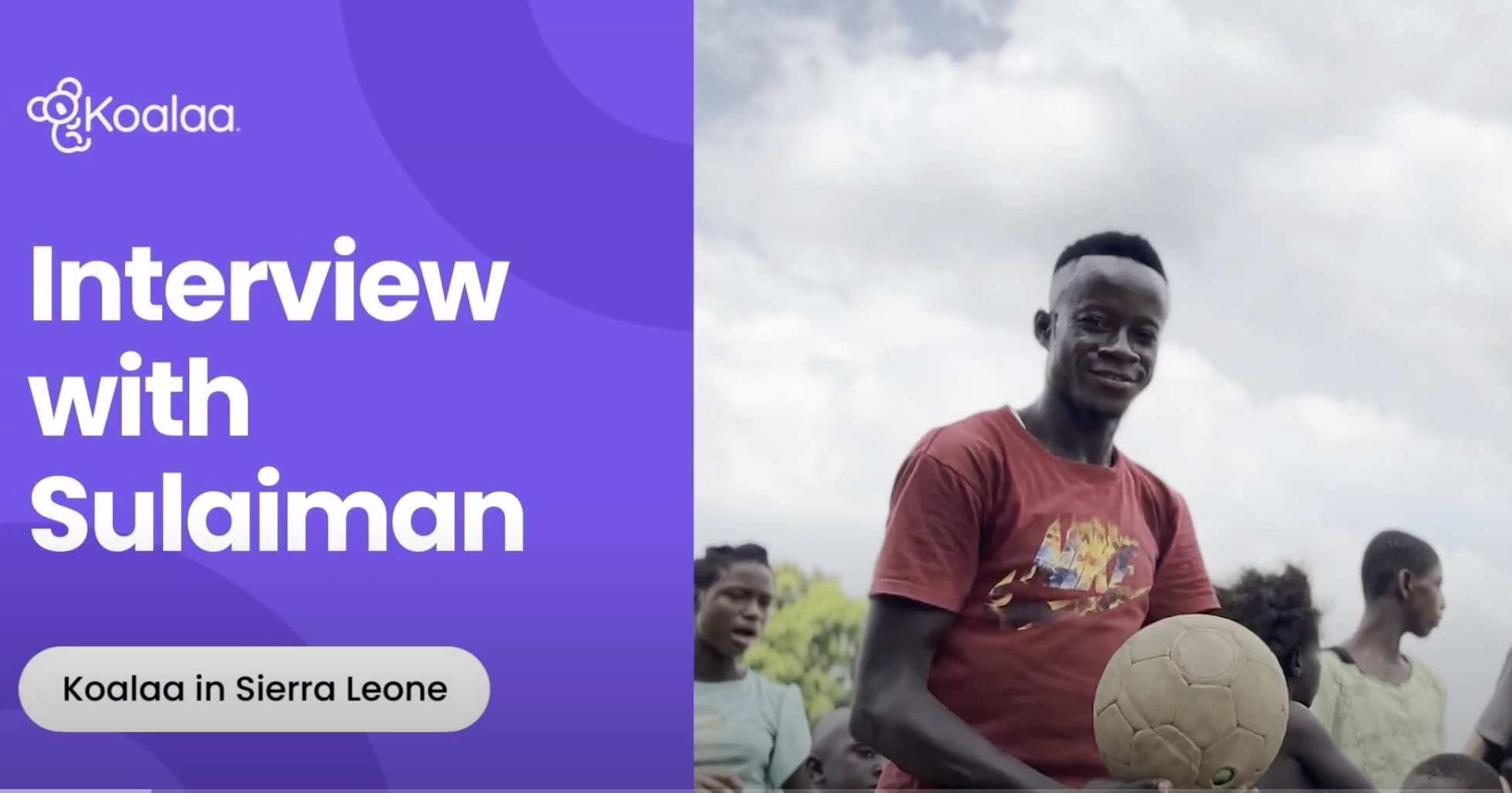
Spotlight on Sierra Leone – Meet Sulaiman
Sulaiman is 28 years old 'top-up' seller for mobile phone sim cards, he lives with his wife and children in Makeni, Sierra Leone. Receiving a Koalaa ALX sleeve has been his first experience with prosthetics and one of the ways he loves to use it is to hold his baby daughter.
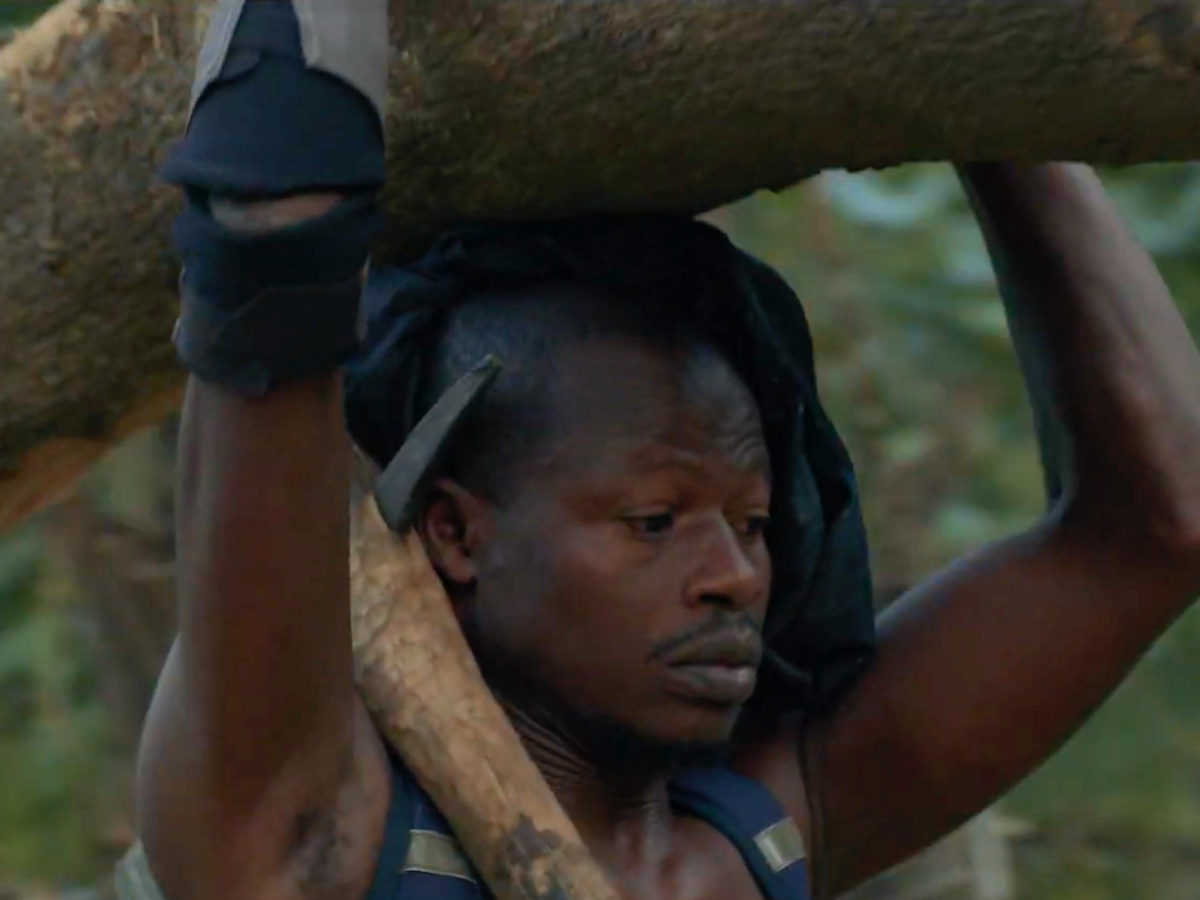
Spotlight on Sierra Leone – Meet Santos
There is a significant need for prosthetics, coupled with a lack of access and also a strong stigma around having limb differences. Below is a video of Santos.
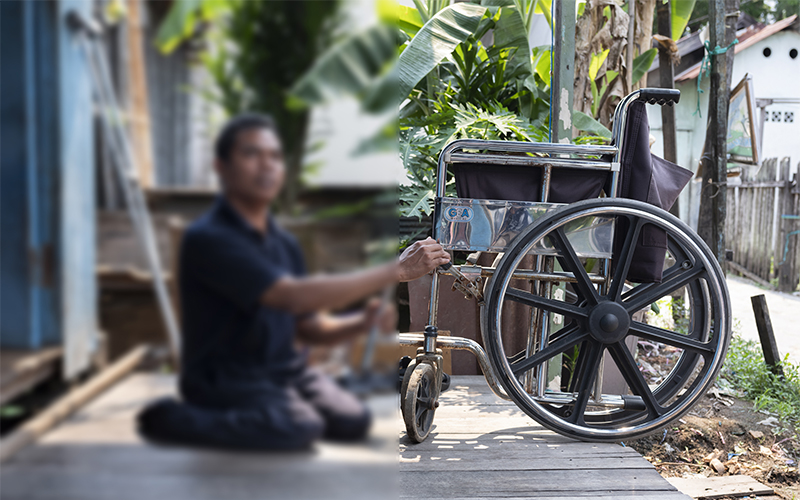
AT2030: Community led solutions. Assistive Technologies in Informal Settlements in Sierra Leone and Indonesia
Find out more about the AT2030 sub-programme focusing on how disabled and older people in informal settlements in Banjarmasin (Indonesia) and Freetown (Sierra Leone) are able to achieve their aspirations, and the role that Assistive Technologies play in their strategies to do so.
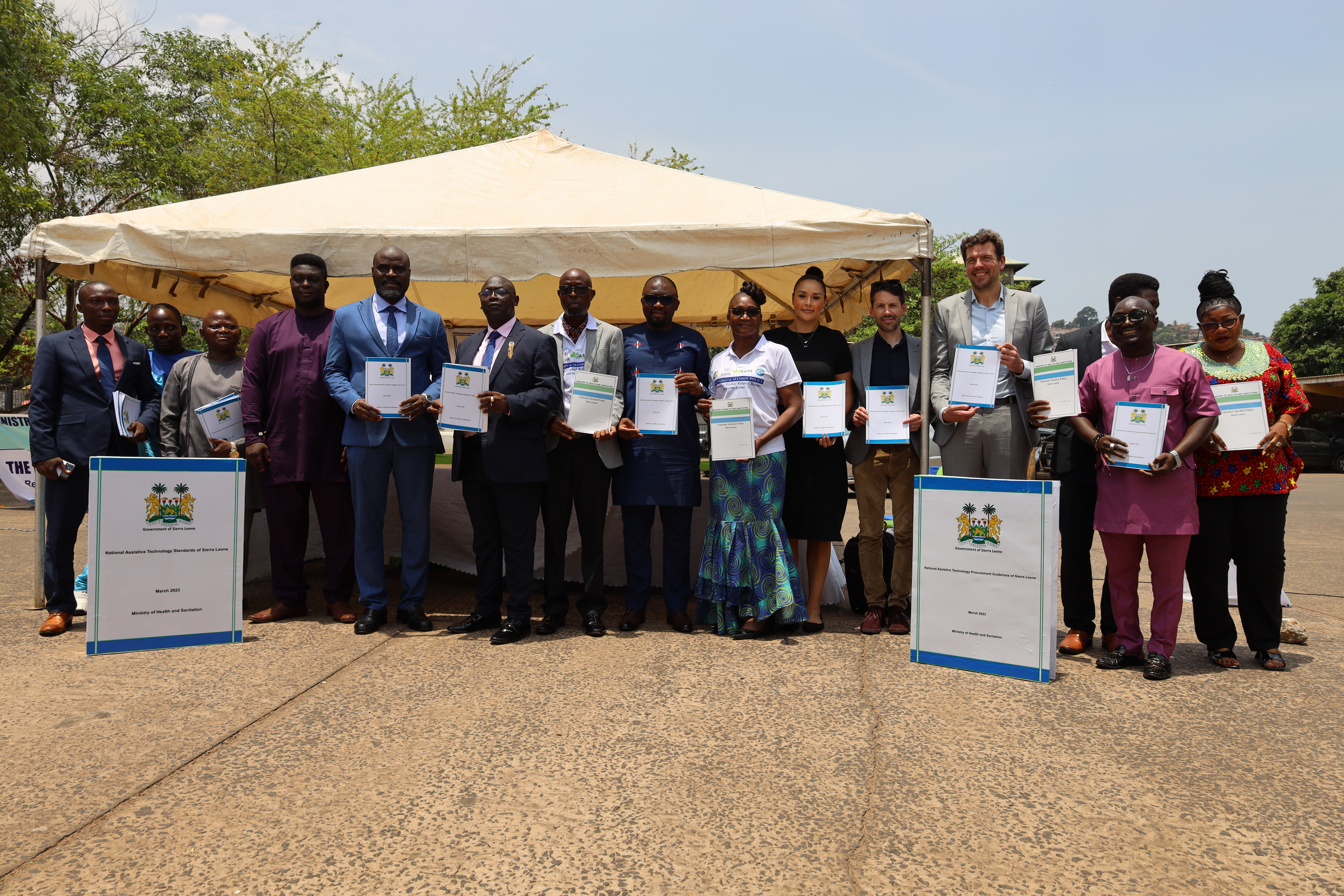
AT Standards and Procurement Guidelines Launch Freetown, 12 April 2023
Persons with disabilities face multiple challenges. According to the World Health Organization (WHO), an estimated 1.3 billion people worldwide experience significant disabilities, representing 16% of the world's population or 1 in 6 individuals. Additionally, persons with disabilities are at a higher risk of developing various health conditions and may experience premature mortality. To address these challenges in Sierra Leone, the Ministry of Health & Sanitation, with support from Clinton Health Foundation (CHAI) and other technical partners, conducted a landscape assessment of assistive technology (AT) services in Sierra Leone in 2019. The assessment revealed critical gaps in the Assistive Technology (AT) landscape, including the absence of a policy and strategy for AT, which posed challenges for planning and implementing evidence-based AT activities in the country.
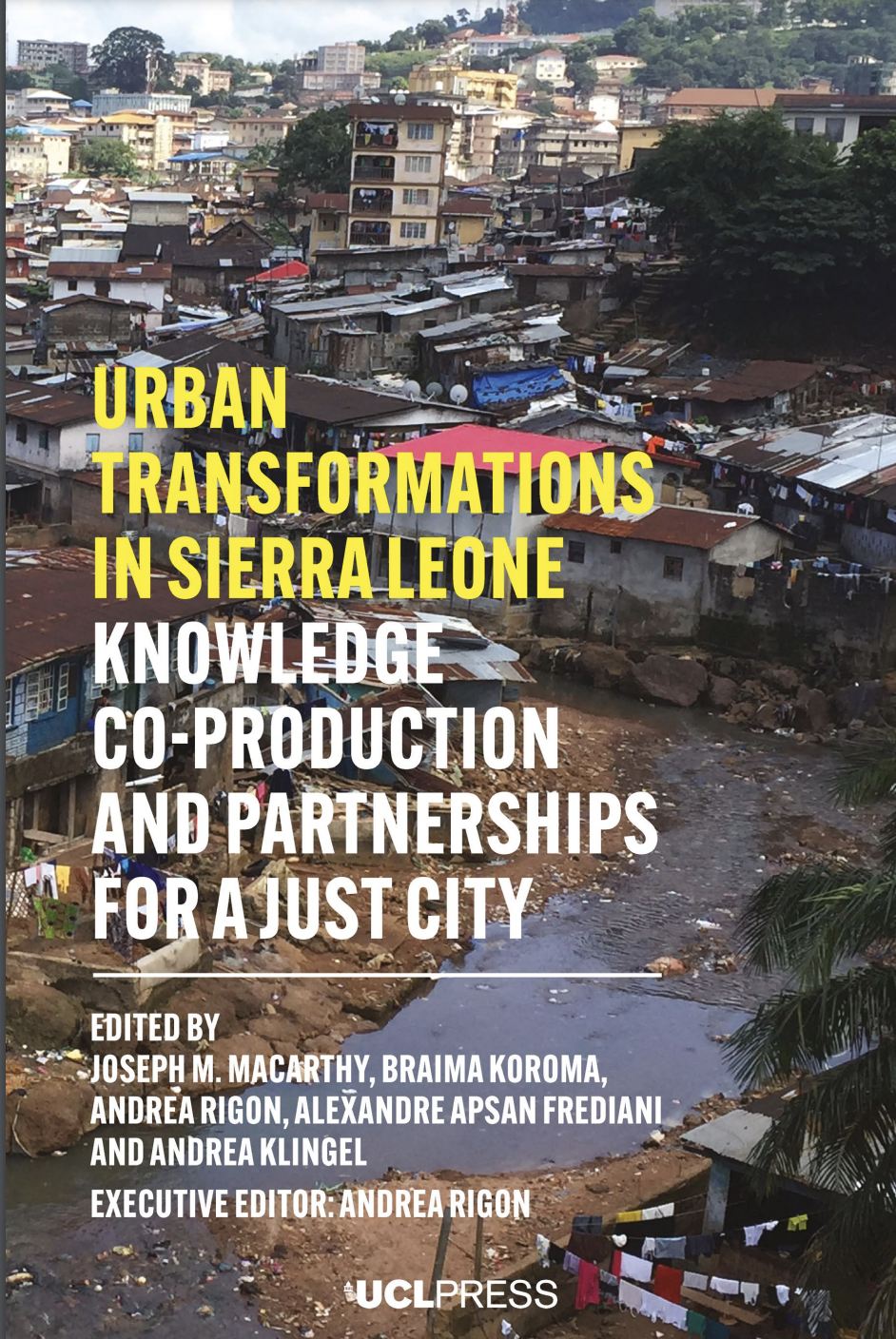
Urban Transformations in Sierra Leone
Freetown, Sierra Leone, faces challenges in services, housing, and infrastructure, worsened by climate change. SLURC, established in 2015, addresses urban issues through research, capacity building, and advocacy. Urban Transformations in Sierra Leone shares SLURC’s findings and partnerships, highlighting the value of transdisciplinary research for Freetown’s future.
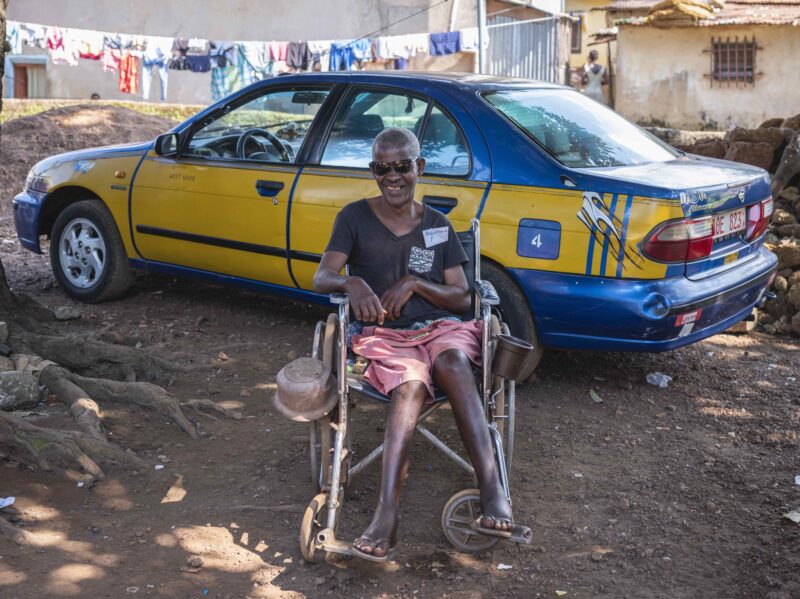
Celebrating International Disability Day in Sierra Leone
Vicki shares her reflections of her experience in Freetown to celebrate International Disability Day (as it is called in Sierra Leone) with the communities for the first time.
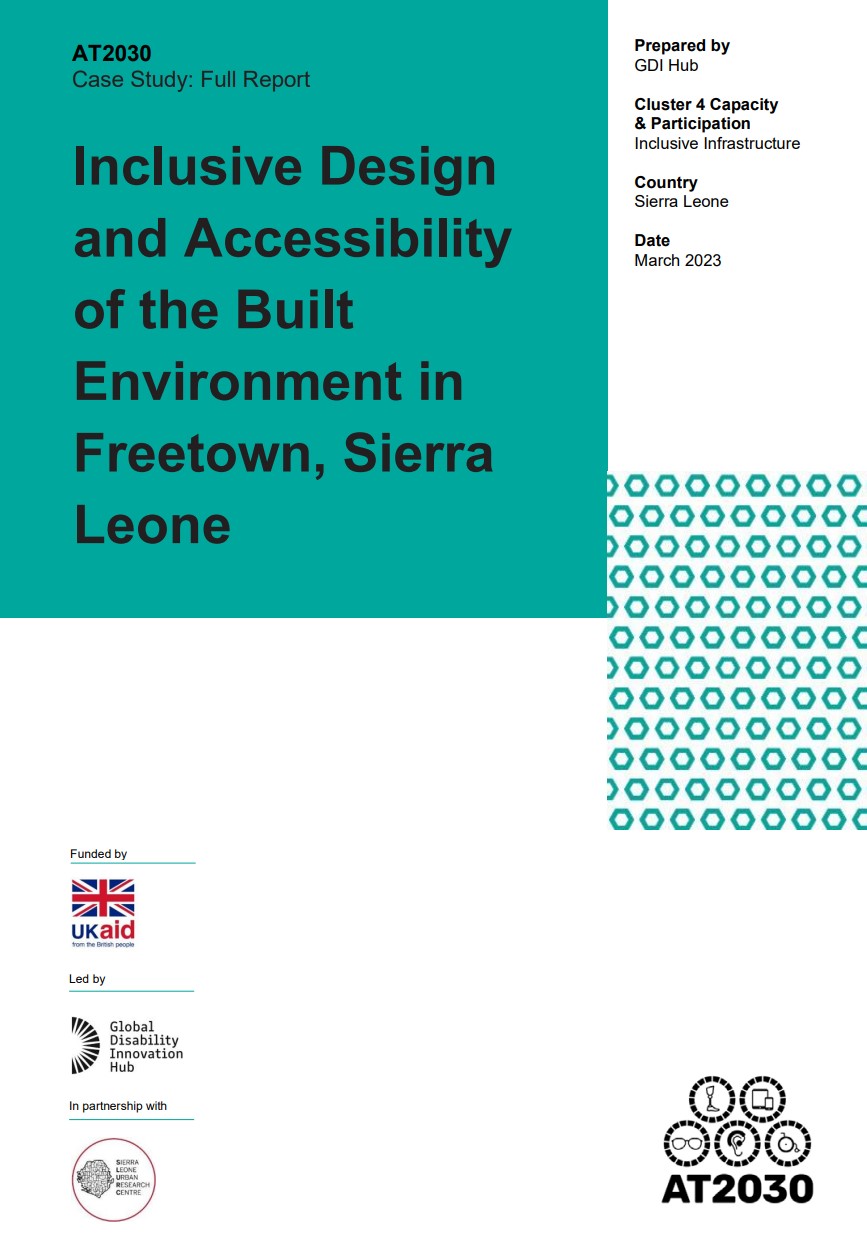
Press Release: Inclusive Design and Accessibility of the Built Environment in Freetown
Global Disability Innovation Hub (GDI Hub) and Sierra Leone Urban Research Centre (SLURC) are delighted to invite you to the launch of this new case study considering Inclusive Design and Accessibility of the Built Environment in Freetown as part of the UK aid funded AT2030 sub-programme, ‘Inclusive Infrastructure’ - exploring the role of inclusive environments to enable equal access to Assistive Technology (AT).
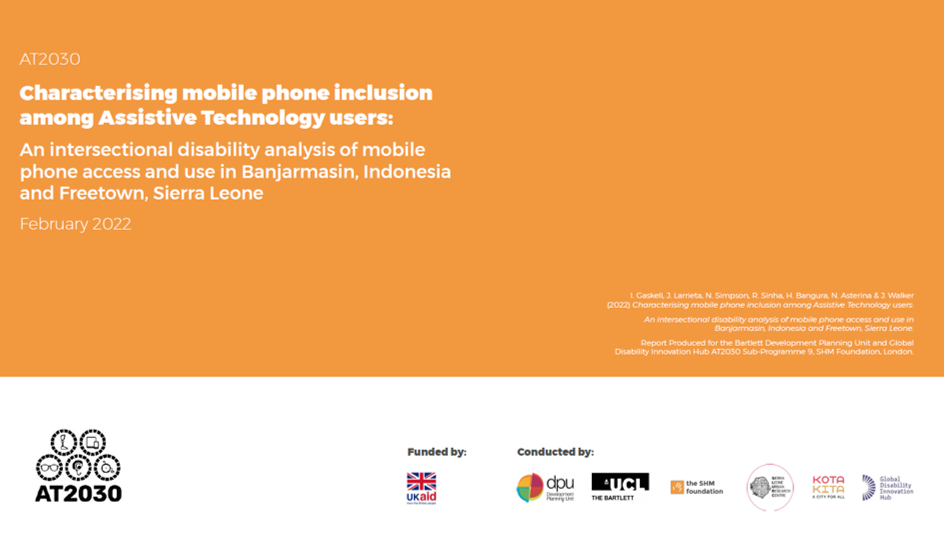
Characterising mobile phone inclusion among Assistive Technology users
Characterising mobile phone inclusion among Assistive Technology users: An intersectional disability analysis of mobile phone access and use in Banjarmasin, Indonesia and Freetown, Sierra Leone This report shares the findings of research conducted in five informal settlements across the cities of Banjarmasin, Indonesia and Freetown, Sierra Leone, in 2020- 2021 as part of the AT2030 Project (AT2030 SP9).
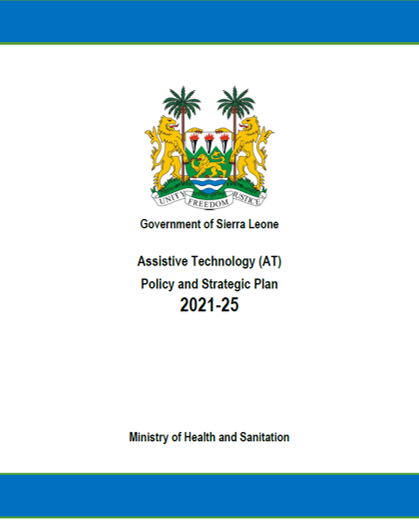
Assistive Technology (AT) Policy and Strategic Plan 2021-25
The Assistive Technology Policy and Strategic Plan was developed by the Clinton Health Access Initiative under the AT2030 Programme Country Investment Fund.
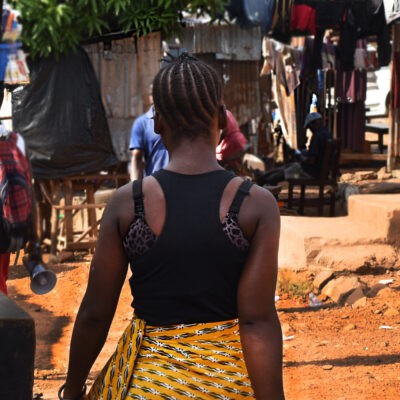
Gender and disability in informal settlements during COVID-19: What we have learnt so far
On Tuesday 11th February, we held an event on The Politics of Making Disability Visible in Community-led Urban Research as part of the Dialogues in Development series at The Bartlett Developing and Planning Unit (UCL). The aim of the event was to share reflections and learnings from the action-research project "Community-led solution: Assistive Technologies in Informal Settlements– an ongoing research project in four low-income urban communities: two in Freetown, Sierra Leone and two in Banjarmasin, Indonesia. Dr Ignacia Ossul Vermehren discussed gender and disability in informal settlements during COVID-19. and sheds a light on what we've learnt so far.
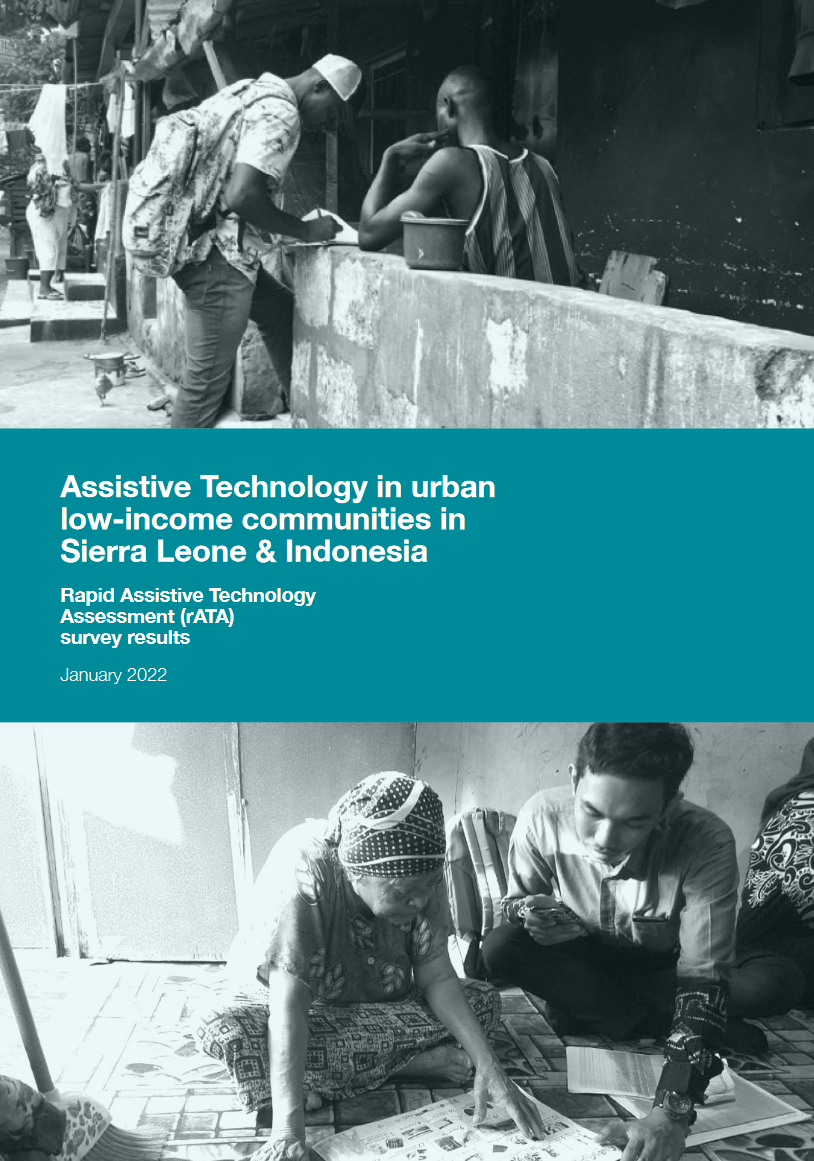
Assistive Technology in urban low-income communities in Sierra Leone and Indonesia: Rapid Assistive Technology Assessment (rATA) survey results
The findings from the surveys presented in this report give a unique insight into disability prevalence and access to AT in five urban low-income communities in Sierra Leone and Indonesia.
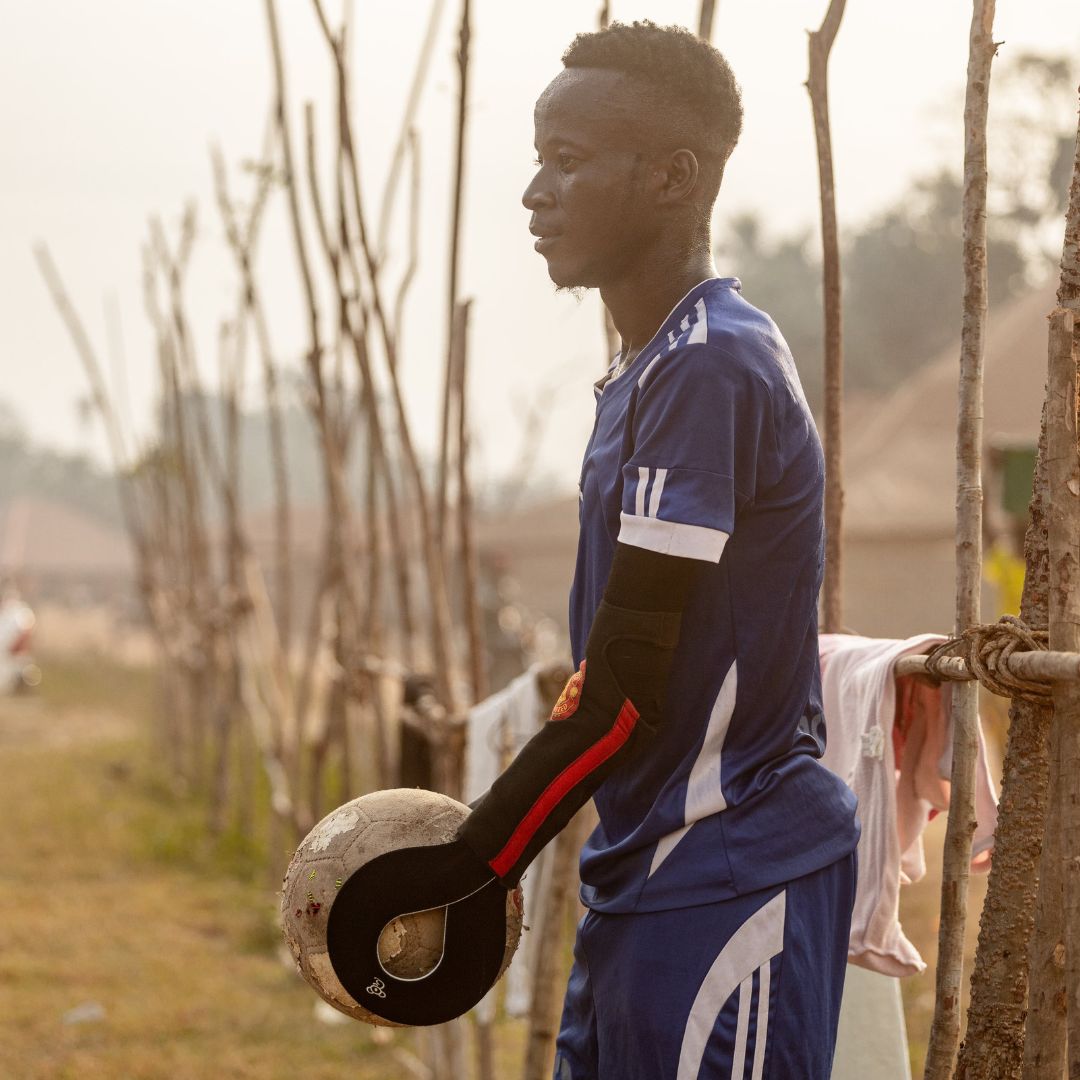
Stories from soft prosthetics users in Sierra Leone
This event has been postponed. We intend to reschedule a digital activity in the coming weeks. The story of affordable, easy to fit, soft upper limb prosthetic in Seirra Leone. This event will include a panel discussion and film screening from BBC Media Seirra Leone, who have captured the experiences of Koalaa prosethetic users in Seirra Leone. As part of the UK aid funded AT2030 programme, the innovative Koalaa prosethetic was introduced for the first time to Africa. During this film screening and panel we'll hear more on the project to drive end-to-end service from manufacturing to fitting and maintenance.